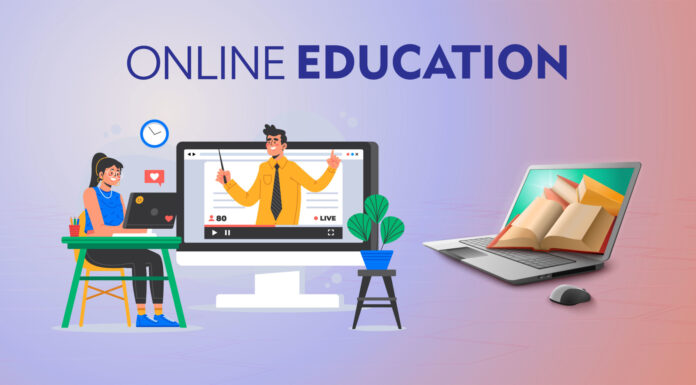Strategies and obstacles in the development of online learning. The notion of classrooms being converted into screens and pixels seemed like something out of science fiction not so long ago.
But when COVID-19 broke out, the world was thrown into a reality where schooling changed dramatically and quickly.
UNESCO reports that 60.2 million educators were placed outside of traditional classrooms and 1.37 billion pupils in 138 countries experienced the effects of school closures.
Today, online education has become a robust reaction to the new normal as we still struggle with the changes brought about by the epidemic. Let’s hear more from College Vidya’s expert, Rohit Gupta, co-founder and COO.
The evolution of virtual learning
In order to continue their educational adventures, educators and students had to immediately adjust when COVID-19 forced the closure of schools and colleges around the world.
Online education quickly gained prominence and became the mainstay of education for many. This adaption demonstrated the enormous possibilities of online teaching while also ensuring continuity.
INDIAN EDTECH STARTUPS: A FORCE TO BE RECKONED WITH
India, which is frequently referred to as the “education hub of the world,” has taken the lead in utilizing technology to improve education. With 4,450 Edtech start-ups helping over 300 million students worldwide, the nation’s Edtech industry has grown rapidly.
These startups are what are responsible for the accessibility, impact, and engagement of online learning.
DIFFICULTIES IN THE NEW REGION
Notwithstanding the indisputable benefits, there are drawbacks to online learning. I think the digital divide is the most urgent problem. There is a risk that the unequal access to technology and the Internet that certain kids experience will worsen already existing educational disparities.
One additional difficulty is the absence of in-person communication. Online learning might be convenient, but it can also make students and teachers feel more alone and less socially connected.
GETTING USED TO THE 2023 NEW NORMAL
Addressing these issues and making the most of the opportunities that online learning offers are crucial to adjusting to the new normal in education. Here are some tips for successfully navigating the ever-evolving landscape of education:
1. Closing the gap in digital access
Governments, educational institutions, and organizations must work together to close the digital divide in order to guarantee that no kid is left behind. Affordable device provision, enhanced internet access, and the provision of technical assistance and training should all be priorities.
2. Improved instruction
A distinct set of abilities is needed for online instruction that teachers may not have previously possessed. Effective online instruction requires funding for teacher preparation programs.
Along with the technical requirements, this training ought to cover tactics for keeping students interested in the online learning environment. Furthermore, it is critical to understand the significance and function of nonverbal cues in the online setting.
3. Adopting cutting-edge teaching strategies
The ability to investigate cutting-edge educational strategies that accommodate a variety of learning preferences is provided by online learning. Multimedia tools, gamification, virtual labs, and interactive content can improve learning and keep students interested.
4. Developing a feeling of belonging
Keeping a feeling of community alive is important in online learning. To encourage communication and cooperation among students, teachers might set up online discussion boards, group projects, and interactive workshops.
Creating a welcoming online learning community can help combat isolation and promote in-depth knowledge of the material.
5. Constant evaluation and criticism
In the context of online learning, regular assessment and feedback are crucial for both instructors and students. They support progress monitoring and offer insightful information about each student’s performance. Moreover, adaptive evaluation systems can point out areas for development and inspire students to achieve success.
FINAL VERDICT
The advent of online learning and the active involvement of Indian Edtech startups have made learning environments more approachable, interesting, and welcoming.
It is obvious that online education is here to stay and will become even more important in determining the direction of global education as we all continue to adjust to the new normal.

































